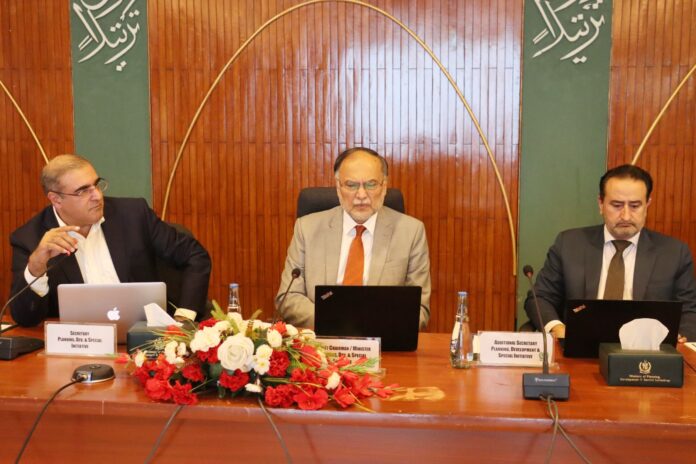The Central Development Working Party (CDWP) on Friday recommended the revised Khyber Pakhtunkhwa Human Capital Investment Project (health component) to the Executive Committee of the National Economic Council (ECNEC) at a total cost of Rs18.14 billion for final approval.
The meeting was chaired by Federal Minister for Planning, Development and Special Initiatives Ahsan Iqbal and reviewed projects in the health and water sectors.
The KP Human Capital Investment Project will be implemented through an independent Project Management Unit under the KP Health Department, following World Bank procurement guidelines and financed through foreign assistance.
Covering 13 districts, including Peshawar, Nowshera, Swabi, and Haripur, the initiative seeks to enhance the availability and quality of primary healthcare services for host communities and refugees.
The CDWP also approved a Rs2 billion project to strengthen the Common Management Unit for AIDS, TB, and Malaria, aimed at accelerating efforts to control the three diseases nationwide.
An Integrated Technical Support Unit will provide oversight, guidance, and capacity building to ensure a coordinated response by the provinces, in line with Pakistan’s Sustainable Development Goals (SDGs) target of eliminating these diseases by 2030.
During the meeting, Minister Ahsan Iqbal emphasised early childhood education as a key national priority while reviewing the ADB-funded Responsive, Readiness and Resilient STEM Secondary Education project in Punjab.
He stressed the importance of quality science and computer labs in public schools and called for a gap analysis to ensure every union council has at least one girls’ high school.
The Planning Minister also highlighted concerns over river and groundwater pollution, directing Punjab’s Planning and Development Department to prioritise wastewater and sewerage management systems as part of climate change adaptation projects, including the Flood Disaster Prevention Master Plan and a stormwater storage system in Multan.
Concluding the session, Iqbal instructed that each development project (PC-1) must clearly define concrete outcomes and measurable impact, underlining that accountability and results-oriented planning are essential for effective public sector spending.




